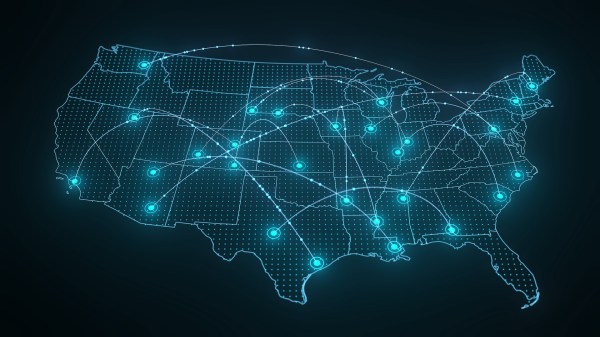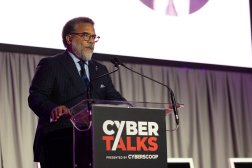Gov. Tim Walz, Harris’ VP pick, has a notable record on cyber

Minnesota Governor Tim Walz’s pick as vice presidential nominee elevates a progressive voice with an extensive legislative and executive record from his time in the Minnesota governor’s office to the top of the Democratic ticket, a record that includes substantial work on cybersecurity.
In 2022, Walz helped spearhead a letter urging the Biden administration not to complicate state cybersecurity measures with federal ones.
The same year, he also published his own executive order on cybersecurity, directing state agencies to upgrade their defenses and use the powers they had to protect critical infrastructure from cyberattacks.
And just a couple months ago he signed into law a data privacy measure.
“My administration has focused on cybersecurity since 2019,” Walz wrote in an introduction to his executive order, touting other cyber achievements like helping establish the first dedicated line of funding for cybersecurity in the state. “These advancements have made Minnesota more secure, but there is more to do.”
As co-chair of the Council of Governors with Ohio’s Mike DeWine, Walz co-signed a letter responding to Biden administration warnings in 2022 about heightened cyber threats following Russia’s invasion of Ukraine.
“We recognize that the federal government bears unique responsibility to strengthen our Nation’s cybersecurity posture, and we stand ready to bolster our Nation’s response,” the letter reads. “Enhanced measures to guard against cyberattacks are most effective through a combination of reasonable, uniform federal guidelines and a carefully considered state processes [sic]. However, we caution against rushed or uncoordinated actions that risk undermining or preempting state policymaking and regulatory processes.”
The letter singled out a 2021 Biden administration executive order that directed federal agencies to take a wide array of cybersecurity steps.
“We urge careful consideration of the likely consequences of states’ independent adoption and enforcement of disparate cybersecurity standards governing private utility providers,” the letter states. “Absent uniform federal guidance, legal difficulties and service disruptions could ensue. Our concern for federal leadership and consistency is underscored in the May 2021 Executive Order on Improving the Nation’s Cybersecurity, which espouses ‘essential, baseline cybersecurity standards that [you] directed all federal agencies to adopt.’”
The letter also called on the federal government to dispatch “resources” to states.
Walz created the first line of dedicated cyber funding in 2019, work that continued in subsequent years with a big chunk of money devoted to information technology upgrades for state agencies coming just last year — including for cybersecurity.
He also signed into law last year legislation designed to punish the use of deepfakes to harm a political candidate or influence an election.
More recently, in May, Walz signed data privacy legislation into law. It places a particular emphasis on data brokers and rules for companies that otherwise control data on large numbers of consumers. It’s set to take effect next summer.
In 2020, Walz caused a brief kerfuffle with confusing remarks about whether the National Security Agency provided intelligence to the state in responding to protests in the aftermath of the death of George Floyd.
After Walz suggested that the NSA had provided Minnesota with intelligence about the protests, the governor’s office had to clarify the governor’s remarks. “No NSA involvement,” a Walz spokesperson told CyberScoop after his initial remarks about a call with then-Defense Secretary Mark Esper caused some head-scratching.
“They also were able to provide their intelligence support of what they’re seeing, what they’re signal intercepting, they have obviously from NSA, from others, massive support to be able to see who these operators are,” Walz said of the military.
“We’re looking at what are the resources they have,” he had said about the Pentagon generally. “Is there signals intelligence that we can get from them?,” he added in remarks that his staff subsequently walked back.





